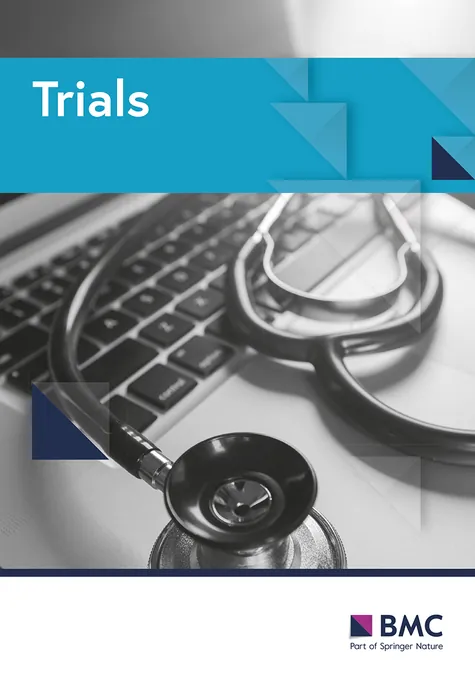
Unveiling the Truth Behind Trials: A Deep Dive into Adverse Events Reporting
2025-05-12
Author: Ming
Introduction to Adverse Events in Trials
In the intricate world of randomized controlled trials (RCTs), understanding how adverse events are recorded, analyzed, and reported is critical. This article series delves into trial conduct, data analysis, the reporting of results, and the pivotal role of public involvement.
Trial Conduct: Setting the Stage for Success
Trial conduct encompasses all procedures necessary for setting up and executing a trial effectively. Traditionally, pharmacological trials received regulatory focus regarding harm assessments, while complex behavioral interventions often lagged behind. However, initiatives like the Recording HArms in Behavioural change Intervention Trials (RHABIT) are now paving the way to improve the documentation of adverse events in these areas.
Frantz et al. present a compelling case study that outlines a tool crafted to enhance the systematic collection of harms in parenting interventions, laying out recommendations for future research. Meanwhile, Taher et al. shed light on regulatory requirements for assessing safety in digital mental health interventions, providing adaptable methods and tools for similar studies.
Efficiency in Trials: A Necessity in a Resource-Heavy Environment
As trials grow increasingly resource-intensive, optimizing efficiency has become paramount. Black et al. introduce a groundbreaking data solution designed for rapid reporting of serious adverse events to trial sponsors, ideally benefiting UK clinical trial units but needing broader availability for nationwide efficacy.
Global Health Challenges: Bridging Gaps in Research
The World Health Organization (WHO) has emphasized the urgent need for well-designed clinical trials in low- and middle-income countries (LMICs). Ayi-Ashong Bruce et al. examine the hurdles faced by the Medical Research Council Unit in The Gambia during vaccine trials, discussing societal and health-related factors that impact adverse event reporting and sharing strategies to overcome these obstacles.
Tackling Inequities in Neonatal Trials
Addressing inequalities in research is a pressing priority for both the WHO and the National Institute for Health and Care Research. Hill et al. confront the challenges in collecting safety data for neonatal trials, particularly in LMICs where the burden is highest. They propose methods for enhancing data collection in these trials, while Li et al. emphasize the need to incorporate equity considerations in research practices.
The Psychological Dimension of Trials
Skommer et al. sound a cautionary note regarding phase I trials, highlighting a critical oversight: the psychological well-being of participants. They argue that psychological traits may influence how adverse events are reported. This raises the question of whether this consideration should extend to later phases of trials.
Reforming Harm Analysis in Randomized Trials
Historically, the analysis of harm outcomes has been neglected in RCTs, often leading to poor practices. Rufibach et al. address this gap by summarizing findings from the SAVVY project, which explored analytical methods to accommodate variable follow-up times and competing events, along with practical recommendations for their implementation.
Enhancing Reporting Standards
Recent updates to the CONSORT guidelines aim to improve the reporting of harms in RCTs. However, Totton et al. argue that further work is needed to provide a balanced perspective on harm versus effectiveness. Their case studies illustrate innovative ways to present adverse events alongside effectiveness outcomes.
Understanding Clinical Study Reports: The Missing Link
Clinical Study Reports (CSRs) offer an in-depth look at trial results beyond what's published in journals. Aronson et al. highlight the importance of CSRs in illustrating the benefit-risk profile of pharmacological interventions. Their analysis reveals that when CSR data is considered, the perceived benefits often diminish, with adverse events appearing more frequently—an essential insight for trialists and healthcare practitioners.
Conclusion: A Call for Transformed Practices
The insights gathered from this series underline the pressing need for improved practices in the collection, analysis, and reporting of adverse events across clinical trials. By prioritizing efficiency, inclusivity, and comprehensive reporting, the research community can enhance our understanding of trial outcomes and ultimately improve patient safety.





 Brasil (PT)
Brasil (PT)
 Canada (EN)
Canada (EN)
 Chile (ES)
Chile (ES)
 Česko (CS)
Česko (CS)
 대한민국 (KO)
대한민국 (KO)
 España (ES)
España (ES)
 France (FR)
France (FR)
 Hong Kong (EN)
Hong Kong (EN)
 Italia (IT)
Italia (IT)
 日本 (JA)
日本 (JA)
 Magyarország (HU)
Magyarország (HU)
 Norge (NO)
Norge (NO)
 Polska (PL)
Polska (PL)
 Schweiz (DE)
Schweiz (DE)
 Singapore (EN)
Singapore (EN)
 Sverige (SV)
Sverige (SV)
 Suomi (FI)
Suomi (FI)
 Türkiye (TR)
Türkiye (TR)
 الإمارات العربية المتحدة (AR)
الإمارات العربية المتحدة (AR)